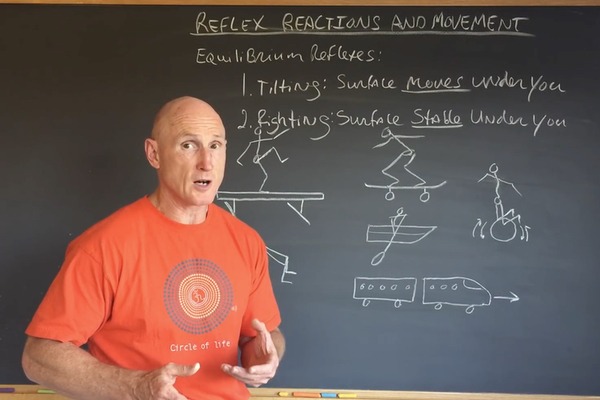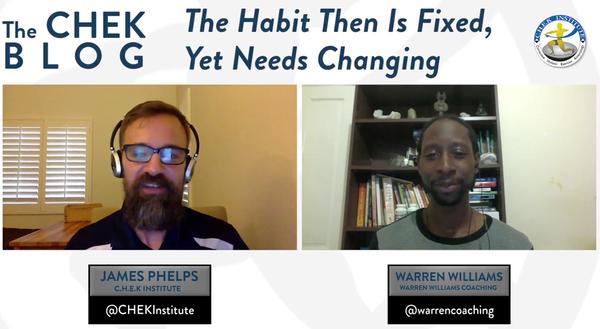Understanding Reflex Reactions and How Your Body Reacts
by Paul Chek

Every so often, I remind you how your system learns movement, specifically the wrong way. Once your nervous system learns a specific exercise, it becomes very difficult to change what it knows and even more challenging when you do it incorrectly.
If you learn how to perform an exercise incorrectly, it takes about 10 times the number of reps than it would normally would to fix that problem. In other words, it’s a long, slow process to correct it.
With this mind, let’s go back to the basics and get a little granular by examining reflex reactions and movements, with a focus on equilibrium reactions.
- Tilting: The surface moves underneath you, like riding a bus or walking on a treadmill.
- Righting: The surface is stable underneath you, like walking on a balance beam or a street.
Depending on what you want to achieve, you may use one or a combination of these kinds of movements to get the job done (like hockey players). Unfortunately, lots of people don’t get the results they want because their exercise programs are not specific enough.
For example, your body will use an entirely different reflex profile running on a treadmill than it would jogging on a track. So, you may run well on a treadmill but not so much on solid ground doing a 10K run.
If you want to learn a lot more about this topic after watching my video, I hope you’ll check out my book, Movement That Matters, in the CHEK Shop.
Love and chi,
Paul


